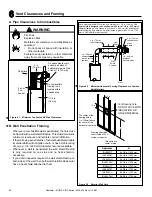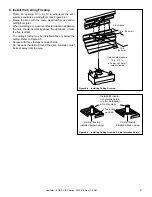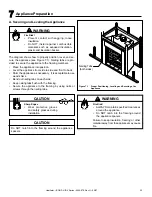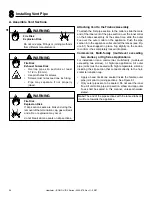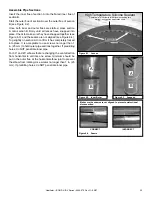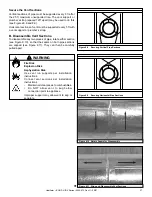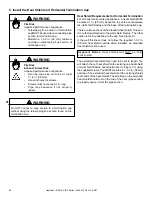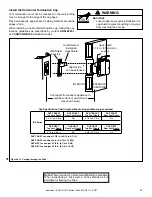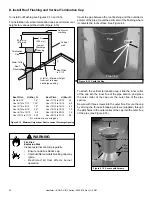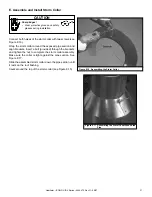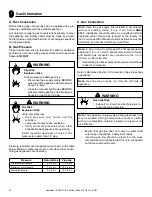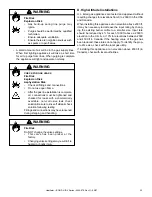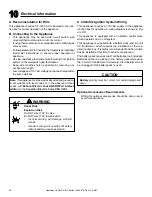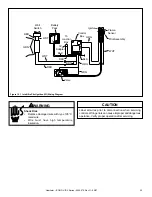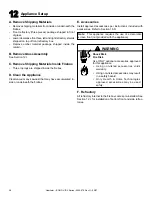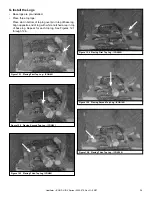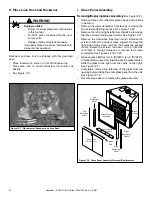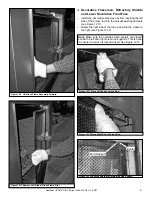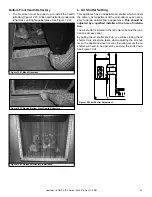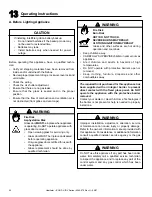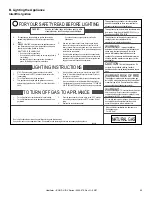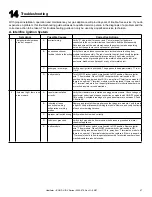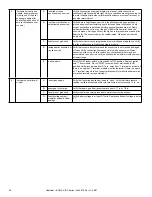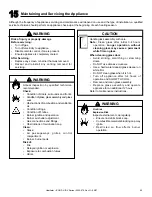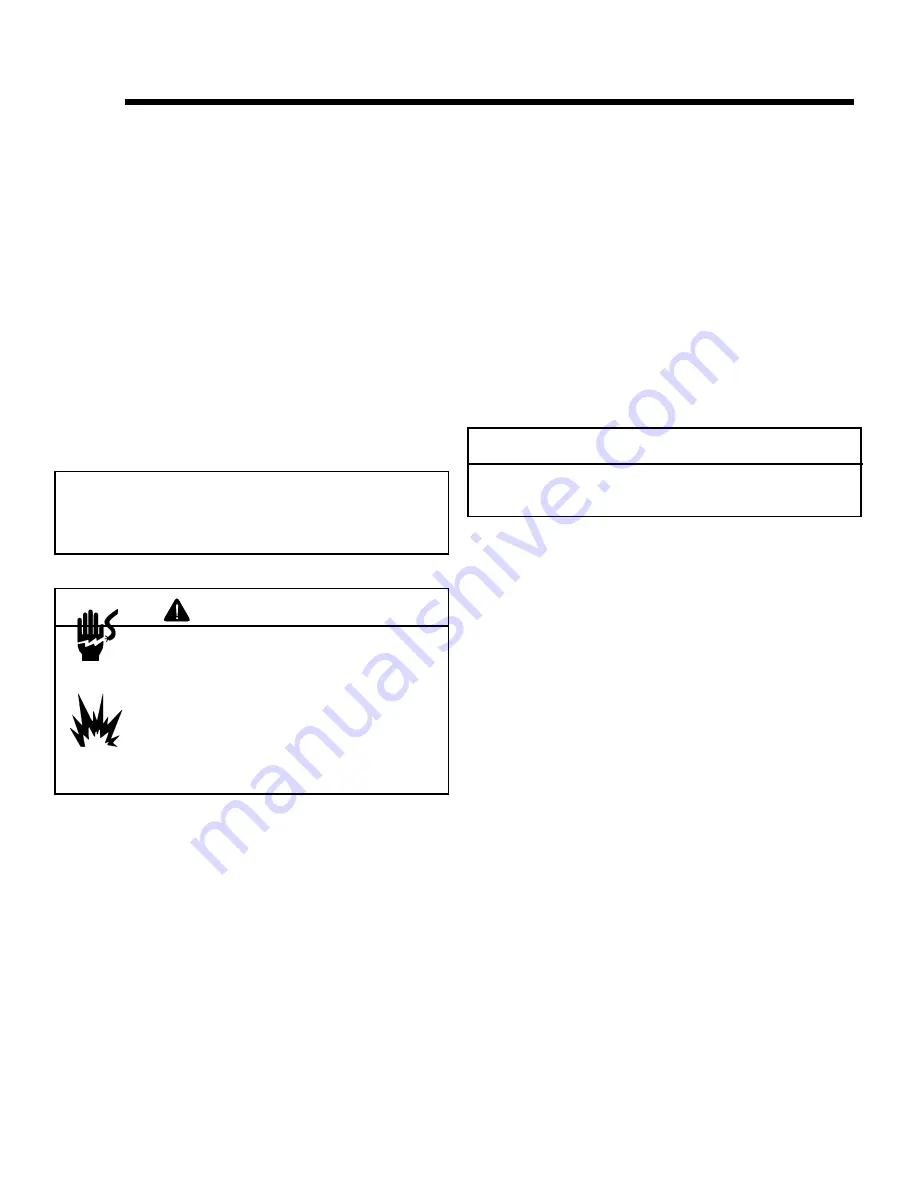
34
Heatilator • ICON DV-IDV Series • 4042-575 Rev G • 09/07
A. Recommendation for Wire
This appliance requires 110-120 VAC to be wired to the junc-
tion box for proper operation of the appliance
B. Connecting to the Appliance
• This appliance may be used with a wall switch, wall
mounted thermostat and/or a remote control.
• If using thermostat use one compatible with a millivolt gas
valve system.
• Follow parameters for locating thermostat (see individual
thermostat instructions) to ensure proper operation of
appliance.
• Use low resistance thermostat wire for wiring from ignition
system to the wall switch and thermostat.
• Keep wire lengths short as possible by removing any
excess wire length.
• Low voltage and 110 VAC voltage cannot be shared within
the same wall box.
Battery
polarity must be correct or module damage will
occur.
CAUTION
Shock Risk
Explosion Risk
Do NOT wire 110V to valve.
Do NOT wire 110V to wall switch
• Incorrect wiring will damage millivolt
values.
• Incorrect wiring will override IPI safety
lockout and may cause explosion.
WARNING
C. Intelli
fi
re Ignition System Wiring
This appliance requires a 110 VAC supply to the appliance
junction box for operation. A wiring diagram is shown in Fig-
ure 10.1.
This appliance is equipped with an Intelli
fi
re control valve
which operates on a 3 volt system.
This appliance is supplied with a battery pack and a 3 volt
AC transformer, which requires the installation of the sup-
plied junction box. It is highly recommended that the junction
box be installed at this time to avoid reconstruction.
The battery pack requires two D cell batteries (not included).
Batteries cannot be placed in the battery pack while using
the 3 volt AC transformer. Conversely, the transformer must
be unplugged if the battery pack is used.
Optional Accessories Requirements
Wiring for optional accessories should be done now to
avoid reconstruction.
10
10
Electrical Information
Note:
This appliance must be electrically wired and grounded
in accordance with local codes or, in the absence of local
codes, with
National Electric Code ANSI/NFPA 70-latest
edition
or the
Canadian Electric Code CSA C22.1.

